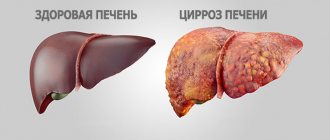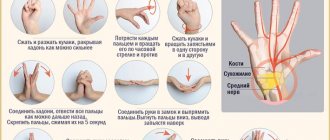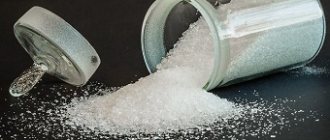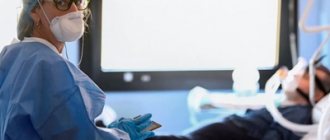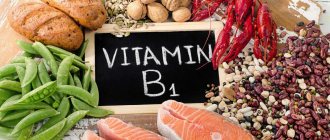October 12, 2021
860
Special mixtures for cancer patients are intended for administration through a tube (nasogastric, nasoduodenal, nasojejunal), through a stoma or in small sips through the mouth. Enteral nutrition can act either as the sole source of nutrients or as an additional one. In this case, absorption occurs through the gastrointestinal mucosa, while with parenteral nutrition, the substances needed by the patient enter the body intravenously.
In what cases is it prescribed?
A lack of proteins, fats and carbohydrates, vitamins and minerals in the body can have a very negative impact on people whose immunity is weakened. Enteral nutrition for cancer patients can replace regular meals in cases where a person cannot eat on his own. This method can be used both in the hospital and at home.
Nutritional support for patients with cancer is provided in the following cases:
- if the patient is unable to eat on his own (impaired swallowing function, coma);
- if a person cannot eat normally due to surgery on the gastrointestinal tract, radiation or chemotherapy;
- if the patient refuses to eat due to depression or anorexia nervosa.
Manufacturers of enteral nutrition
Now enteral nutrition for adults and children is produced by many companies, so you can choose a formula for almost any patient, taking into account his condition, diagnosis, allergies to any components, etc. Particularly worth noting is Brown's enteral nutrition: Nutricomp is used for exhaustion of the body after operations and serious illnesses - oncology, radiation and chemotherapy, for skull injuries, burns, gastrointestinal diseases, comatose states, etc.
B.Braun (Germany) produces enteral nutrition packages of 500 ml, 200 ml and 1000 ml.
Advantages
Enteral nutrition mixtures are formulated in such a way as to prevent nutritional deficiencies in the body of a sick or recovering person. They are delivered directly to his digestive system and are quickly absorbed. Moreover, for this you do not need to carry out complex procedures or use any medical instruments. To introduce such food into the patient’s body, you only need to open the package and connect it to the probe.
Specialized therapeutic nutrition for cancer helps preserve the integrity of the intestinal mucosa and provides the patient’s body with the substances necessary for life and recovery. Since such nutritional mixtures are available in a wide range of online pharmacies, you should consult your doctor before purchasing them.
The period of nutritional support is unlimited. Favorable prices, well-thought-out nutrient content, physiological properties and the absence of complications make these mixtures a good solution in situations where a cancer patient cannot take regular food by mouth. The mode of supply of the mixture and the method of administration are selected individually depending on the patient’s condition, his diagnosis and the presence of intolerance to any substances. To prevent the development of complications, a biochemical blood test and determination of its mineral and electrolyte composition are performed once a week.
Press conference “Therapeutic nutrition for COVID-19”
On February 8, 2022, on the territory of Innovative, with the support of the Nutricia company, a press conference “Therapeutic nutrition for COVID-19” was held, at which the results of the first clinical study in Russia on the effect of specialized food products on the recovery of patients with COVID-19 were presented.
The host of the online conference, Katerina Gordeeva , writer, journalist and TEFI laureate, drew the attention of listeners to the broad, but rather one-sided coverage of the topic of treatment and recovery of patients with COVID-19.
The media and medical specialists talk mainly about the prevention of the disease and the possibilities of conservative therapy, but little touches on the important issue of additional means and measures that can speed up recovery and minimize the negative consequences of the disease, as well as promote the restoration of physical activity.
Thus, in addition to standard patient management methods, it is worth paying close attention to nutritional support for patients with COVID-19. Patients with coronavirus often suffer from loss of appetite and/or loss of taste, which significantly limits the body's supply of critical macro- and micronutrients needed for recovery and therefore prevents a speedy recovery.
Professor Sergey Viktorovich Sviridov, MD, President of the National Association of Clinical Nutrition and Metabolism (RSPEN) , noted that since the beginning of the pandemic, powerful efforts of medical specialists have been aimed at developing an integrated approach to the treatment of this disease, optimizing drug therapy, which must also be multimodal.
There is no doubt that correction of protein-energy malnutrition is an integral part of complex intensive care in patients with severe infection. For this purpose, special means of nutritional support have been developed, including methods of enteral and parenteral nutrition.
One of the directions is the use of specialized food products - in the form of siping, which involves oral intake of nutritional mixtures through a tube in small sips. These nutritional mixtures are highly effective methods for correcting protein-energy malnutrition in patients who, for one reason or another, cannot provide sufficient intake of proteins, energy and other nutrients into the body through normal nutrition.
The accumulated experience in the use of siping nutrition in patients with surgical, neurological, pulmonological and other profiles has led us to assume the effectiveness of nutritional support in patients with COVID-19. In conditions of viral infection, and especially when accompanied by a bacterial infection, which contribute to the development of multiple organ failure and tragic outcomes, the role of clinical nutrition is extremely important. Without an adequate supply of proteins, micronutrients, and vitamins, the success of drug therapy will be questionable.
Sergei Viktorovich noted that the introduction of therapeutic nutrition should be carried out at the earliest stages of the disease and continue after discharge from the hospital, from several weeks to six months. Early initiation of nutritional therapy ensures its greatest effect.
In mild cases, if food intake within the normal dietary table meets the patient's needs, additional support is not so necessary. But already in cases of moderate severity, when the risk of protein-energy deficiency becomes catastrophically high, special nutritional support is crucial. Thus, according to the professor, about 60-70% of patients need specialized nutrition.
Krylov Kirill Yurievich, Candidate of Medical Sciences, Associate Professor of the Department of Anesthesiology, Reanimatology and Intensive Care, Faculty of Medicine, Russian National Research Medical University named after. N.I. Pirogov , spoke about the results of a prospective open comparative observational study in two groups assessing the effect of the special nutrition mixture (ONS) Nutridrink® 200 ml on the ability of patients with COVID-19 to restore health
Russia is one of 16 countries participating in this study, and was the first to present its results.
The study was conducted under the auspices of the National Association of Clinical Nutrition and Metabolism at 5 centers in Moscow, St. Petersburg, Yekaterinburg and Omsk. 205 patients were included in the study, of which 185 were randomized into two groups: 90 people were on the usual diet in hospital and 95 received an additional two bottles of Nutridrink 200 ml. The study assessed the quality of life of patients and the ability to increase their rehabilitation potential. In particular, how quickly patients stopped needing respiratory support, muscle strength increased, and how much time spent in hospital was reduced.
Patients took specialized enteral nutrition orally using the siping method: in small sips, for 20-30 minutes. Interim results were collected on days 14-21 upon discharge from the hospital, after which patients in the study group were given a home supply of Nutridrink specialized nutrition to take until the 28th day from the date of inclusion in the study.
Analysis of the results showed a statistically significant increase in the rehabilitation potential and improvement in the subjective state of patients in terms of physical health according to the SF-36 quality of life questionnaires from the group receiving Nutridrink. Also, the indicators of hand muscle strength determined by dynamometry were statistically significantly higher. Patients from the group receiving Nutridrink were on average one and a half days less dependent on respiratory support, and their hospitalization period was 3 days less, which not only affects the quality of life of patients, but also significantly saves money for the healthcare system as a whole.
Nail Egofarov, head of the scientific and medical department and market access of products at Nutricia CIS , spoke in detail about the company and its mission, as well as about the Nutridrink product, which was used in the study.
The Nutricia company is one of the largest international companies producing specialized food products for adults and children and the largest international importer of specialized food to Russia. The company is part of the Danone group of companies, whose main goal is to produce high-quality nutrition for people's health. The Nutridrink product was created in a research center in Utrecht, the Netherlands, whose scientists not only carefully analyzed clinical experience and the latest expert recommendations, but also took into account the wishes of patients.
Nutridrink is intended for patients who require increased amounts of protein and energy in order to speed up recovery after illness. 200 ml of product contains 300 kcal and 12 g of protein. In case of severe COVID-19, Nutridrink can be used both as a sole source of nutrition (5-7 bottles per day) and as a supplement to the main diet (2-3 bottles per day), which is confirmed by its balanced formula. Today the Nutridrink line is represented by strawberry, vanilla, chocolate and banana flavors. Vanilla flavor can be used with caution in children over 3 years of age.
The product contains proteins, fats, carbohydrates, vitamins A, B, C, D, E, omega-3, 6 fatty acids, minerals, and a complex of carotenoids. Various components promote the synthesis of immunoglobulins and have immunomodulatory, antioxidant, and anti-inflammatory properties. A balanced composition of micro- and macronutrients helps to cope with the virus and speed up the recovery process.
Krylov Kirill Yurievich , Candidate of Medical Sciences, Associate Professor of the Department of Anesthesiology, Reanimatology and Intensive Care, Faculty of Medicine, Russian National Research Medical University named after. N.I. Pirogov, emphasized that therapeutic nutrition for patients with COVID-19 is an integral component of treatment, no less important than drug therapy. Professor Sviridov S.V. agreed with his colleague, adding that the National Association of Clinical Nutrition and Metabolism is working to include specialized nutrition in the recommendations of the Ministry of Health of the Russian Federation.
Link to video conference https://www.youtube.com/watch?v=BrrdLVyM8jk
The final research report is posted on the Enrollme company website: https://about.enrollme.ru/2021/01/29/news17/
Link to the company website: https://nutricia-medical.ru/
¹ Ware JE, Kosinski M., Keller S. SF-36 physical and mental health summary scales: a user's manual. – 2001. – S. 1994.
Contraindications
Enteral nutrition is not used in the following cases:
- complete intestinal obstruction;
- dilation of the veins of the esophagus;
- stomach bleeding;
- absence of most of the small intestine;
- peritonitis;
- acute renal failure;
- malabsorption of food;
- individual intolerance to the substances included in the mixture.
Relative contraindications include partial intestinal obstruction, diarrhea, nausea and vomiting, pancreatitis.
Kinds
Liquid mixtures for enteral nutrition are divided into:
- standard, which are intended for a normally functioning gastrointestinal tract;
- semi-elemental, which are suitable for administration in case of digestive disorders;
- modular, consisting of one element, for malnourished patients;
- directed action, designed for feeding when the functioning of any organ is impaired.
They may contain dietary fiber. Enteral nutrition mixtures containing cellulose, gums or pectins can improve intestinal function. Therefore, they are prescribed in cases where long-term use of medications provokes disruption of the functioning of the gastrointestinal tract. In addition, they reduce blood cholesterol levels, prevent the growth of glucose levels, and help remove toxins from the body. The fibers included in this diet do not provoke bloating, flatulence and stomach cramps, normalize peristalsis and prevent constipation.
If a sick person is not provided with adequate clinical nutrition, then within 2-3 days he will begin to experience a lack of nutrients. As a result, the proteins present in the body will be used as a source of energy for life and there will be a shortage of resources needed for healing wounds and creating new tissues. In addition, if nutrients do not enter the intestines for a long time, the cells of its mucous membrane will begin to destroy. As a result, it atrophies and ceases to function as a barrier to the penetration of various infections into the bloodstream. With enteral nutrition, the intestinal mucosa will continue to function as usual, which will contribute to a speedy recovery of the person and will help him quickly return to normal life and the usual way of eating.
Nutritional support for cancer patients is important because it:
- increases the tolerability of therapy;
- reduces the side effects of chemotherapy;
- prevents or corrects macro- and micronutrient deficiencies;
- maintains optimal body weight;
- improves quality of life
Doctors recommend considering nutritional therapy as an essential element of treatment and starting it as early as possible: this increases the chances of avoiding nutritional deficiency and leveling out nutritional status, eliminating severe malnutrition.
What you need to know
Several bottles of this mixture during the day can replace the patient’s usual meals. And 1-3 packages of enteral nutrition per day can be a good additional source of vitamins, minerals, proteins, fats or carbohydrates. The mixture may include milk protein, corn syrup, powdered eggs, various vitamins, minerals and amino acids. In case of sudden weight loss, which can be observed with cancer, enteral nutrition is carried out using formulations with a high protein content.
If nutrition is required over a long period of time, administration through the stoma is preferable. Because the probe can cause bedsores. But feeding through a tube, which can be inserted through the nose into the stomach, duodenum or small intestine, is less traumatic for the patient. It is very good if the patient can take the mixture on his own, at least in small sips (siping nutrition). This allows you to significantly speed up the process of recovery after a serious illness.
Enteral nutrition delivery
The mixture supply mode is selected individually. There are 4 methods of administering nutrition to a patient:
- Around the clock and at a constant speed - the power supply speed is low to begin with, about 60 ppm. If the patient does not have vomiting, diarrhea, or convulsions, then the rate is gradually increased by 25 ml/hour over 8-12 hours. However, a patient in serious condition after surgery receives nutrition at a rate of no more than 30 ml/hour.
- Drips during the day, but with a break at night - most often used when feeding through a gastrostomy tube.
- Periods of 4-6 hours, which is good for patients after gastrointestinal surgery or suffering from diarrhea.
- Bolus, i.e. in small portions, almost the same as with a normal diet. This stimulates the natural functioning of the gastrointestinal tract. Feeding takes place 3-5 times a day, in portions of no more than 240 ml per 30 minutes, although the first portion of the mixture should not exceed 100 ml. It is gradually increased.


